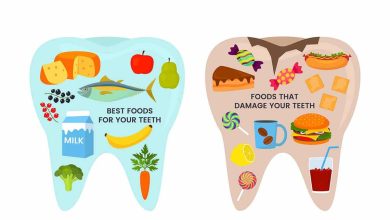Get Mental Health Help With Online Counseling for Depression and Anxiety

Mental health issues can be incredibly difficult to deal with on your own. Whether you’re struggling with anxiety, depression, or another mental disorder, it can be hard to find the resources you need to get through it. Fortunately, there are plenty of online counseling for depression and anxiety resources that can help you get the support you need. In this article, we’ll explore eight of the best ways to get mental health help right from the comfort of your home.
Understanding Mental Health Disorders
Mental health disorders are conditions that affect a person’s thoughts, feelings, and behavior. They can be mild or severe, and can interfere with daily life. If you’re feeling stressed or unhappy, it might be time to talk to your doctor about getting help for your mental health disorder.
There are many different types of mental health disorders, but they all have some common characteristics. Mental health disorders often involve problems with mood (feelings), emotions, thoughts, and behavior. They can also involve problems with physical health (such as problems with sleep), relationships with others, or functioning in the world around you.
If you’re feeling stressed or unhappy, it might be time to talk to your doctor about getting help for your mental health disorder. There are many different types of mental health disorders, but they all have some common characteristics. Mental health disorders often involve problems with mood (feelings), emotions, thoughts, and behavior. They can also involve problems with physical health (such as problems with sleep), relationships with others, or functioning in the world around you.
Finding the Right Mental Health Therapist
There are many types of mental health therapists, so it can be hard to know which one is right for you. If you’re feeling overwhelmed, here are some tips to help find the right therapist for you:
- Ask around. Talk to your friends, family, and colleagues about their experiences with mental health professionals. This will give you a good indication of what type of therapist would be best for you.
- Do your research. Once you’ve decided on a type of therapist, do some research on the professionals in that field. This will give you an idea of their qualifications and experience.
- Consider location and availability. Make sure the therapist is available in your area and that the office is comfortable for you to visit.
- Consider price and insurance coverage. Finally, make sure the price and insurance coverage are acceptable to you before booking an appointment.
Building a Support System
If you’re feeling down, there are plenty of ways to get help. You can talk to a friend, family member, or therapist. You can also reach out to a mental health hotline. Or you could use one of these self-help methods.
- Get organized. Make a list of your problems and see if anyone else has any advice on how to address them.
- Find a hobby that brings you joy. This will help take your mind off of your problems and give you something constructive to focus on.
- Take some time for yourself every day. Go for a walk, read a book, or watch TV without feeling obligated to talk to anyone afterward.
- Talk about your feelings with someone who will understand them better than anyone else does. Talking about your feelings can be really healing for both you and the person you talk to.
There are many different ways to get help when you need it, so find what works best for you and start building the support system that will help you cope better with stress and anxiety disorders in the future
Managing Stress and Anxiety
Managing stress and anxiety can be a difficult task, but there are many ways to get help from the comfort of your home. There are plenty of self-help books and programs available, as well as online resources. If self-care isn’t your thing, consider reaching out to friends or family for support. Whatever route you choose, make sure to consult with a healthcare provider if you find that managing stress and anxiety is becoming too challenging.
Coping with Depression and Sadness
Depression and sadness are two common mental health issues that can be difficult to cope with on your own. If you are feeling down and hopeless, there are many online counseling for depression and anxiety ways to get help right from the comfort of your home. Here are five tips for coping with depression and sadness:
- Get organized. The first step in coping with depression and sadness is getting organized. When you have a plan for what you want to do, it becomes much easier to stick to. Make a list of everything that needs to get done, from tasks at work to errands you need to run outside of the house. Having a plan will help keep your focus and give you something to look forward to.
- Talk about it. One of the best ways to cope with depression and sadness is by talking about it with someone who will understand. Talking about how you’re feeling can help ease the burden and give you some relief. Talking can also provide some valuable feedback that can help improve your mood in the future. There are many resources available for talking about mental health issues, such as talk therapy or group counseling sessions.
- Exercise . Exercise has been shown time and time again to improve moods across all spectrums, including depression and anxiety. When you exercise, your brain releases endorphins which have positive effects on emotional states. Not only does exercise provide physical benefits, but it can also be an outlet for stressors in your life Finding.
Dealing with Trauma
The following are some ways to get mental health help right from the comfort of your home:
- Trauma can be a very difficult experience to deal with, and it can often feel like there is no way out. However, there are many ways to get help if you find yourself feeling overwhelmed. Here are some tips.
- Talk about your feelings. It’s important to talk about what you’re going through with someone who will understand and care. Talking to a trusted friend or family member can be very helpful in opening up and getting relief.
- Get involved in a support group or therapy session. Seeking out professional help can be extremely beneficial in terms of both emotional and physical healing. Group sessions offer an opportunity to share experiences and support one another, while individual therapy allows for more one-on-one time with a therapist.
- If you find that you cannot take it anymore and feel like harming yourself or others, please call for emergency assistance. This may seem like an extreme measure, but sometimes the only thing that gets us out of our head is contact with emergency services professionals who know how to handle these situations properly.
Taking Action Towards Mental Well-Being
Mental health is an important issue that needs to be addressed on a global scale. One way to help reduce the number of people with mental health issues is to take action towards mental well-being at home. There are many ways to do this, and it doesn’t have to be hard or expensive. Here are seven tips for getting started:
- Make sure you get enough sleep: Getting enough sleep is essential for both your physical and mental health. In fact, research suggests that getting less than 7 hours of sleep per night can increase the risk of developing depression and anxiety by 50%.
- Exercise: Exercise has been shown to be beneficial for both your physical and mental health. Not only does exercise improve your mood, but it can also decrease your risk of developing depression, anxiety, and other psychiatric disorders.
- Eat healthy foods: Eating a healthy diet is another important way to reduce your risk of developing mental health issues. Not only does a healthy diet provide you with essential nutrients, but it also has anti-inflammatory properties that can help improve your moods…
Get Support from Friends and Family
If you’re struggling with mental health issues, there are a few places you can turn for help. Friends and family are always a great place to start, but if they’re not able or willing to provide the support you need, there are other options available.
Depression and Anxiety treatment online services can be found in many different places, from hospitals and clinics to social agencies and support groups. There’s no one right way to get help, so find the provider that best suits your needs and schedule an appointment. You’ll also want to make sure you have all of the information necessary before visiting, such as your diagnosis and what treatments are available.
If friends or family aren’t providing the support you need, it’s important to reach out for professional help. There are many resources available throughout the country, including community-based outpatient programs and psychiatric hospitals. Talk to your doctor about what options are available in your area and find a program that will work best for you.
 Seek Professional Treatment
Seek Professional Treatment
If you’re feeling overwhelmed by your mental health struggles, there are many options available to you. You may want to seek professional treatment, but that’s not always necessary or desirable. There are a number of self-help strategies that can be effective in managing your mental health issues, and there are also plenty of community resources available for those who don’t want to leave their homes. Here are some ways to get started:
-
Talk About Your Feelings With Someone Close To You
If you’re finding it difficult to open up about your feelings with other people, try talking to a trusted friend or family member about what’s going on. This is an effective way to get your thoughts out in the open and gain some perspective on what’s been happening. It can also help you work through any Issues that you’re struggling with.
-
Set Goals And Take Action Towards Them
One of the best ways to manage mental health problems is by setting goals and taking action towards them. This can help you feel like you’re making progress, even if you don’t see immediate results. Try working towards goals related to your health, happiness, or productivity. This will help keep your mind occupied and give you something tangible to aim for when times get tough.
-
Seek Out Social Activities ThatFit Your Personality Type
Mental health problems don’t just affect one type of person; they can affect anyone at any time. If social activities aren’t providing the relief that you
Use Online Mental Health Resources
Online mental health resources are a great way to get help when you need it without leaving your comfort zone. There are many websites and apps that offer mental health support, and you can find the right one for you by looking at the features it has and the type of person who will be using it.
One of the most popular online mental health resources is Mood Swings. This app offers mood tracking, daily mood logs, digital therapy notes, and a community forum where users can discuss their experiences and connect with others who have similar issues. Mood Swings also has an app for Apple Watch which allows you to track your moods in real-time. You can find best anxiety therapist near me online.
If you’re looking for a more personal experience, some of the best online mental health resources include Psych Central’s website and app. My Psych Reports, Talkspace, and Calm.com. These websites offer self-help books along with interactive tools such as blogs and chats that allow users to connect with professionals or other users who have similar issues. All of these websites offer free trial periods so you can try them before committing to paying for them.
Mental health is an important issue that should not be taken lightly, so make use of online mental health resources to get the assistance you need when you need it most.
Conclusion
Mental health problems can be very hard to deal with, especially if you don’t know where to turn. Thankfully, there are a number of online counseling for depression and anxiety resources available to help you from the comfort of your own home. In this article, we’ve outlined eight ways you can get mental health help and support. Whether you need someone to talk to about a problem that is affecting your day-to-day life or need some advice on how to cope with an issue longer term, these resources will be able to help. So if you’re feeling down or just need somebody to talk with, reach out and see what’s available!





